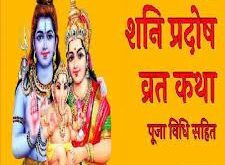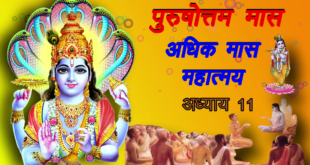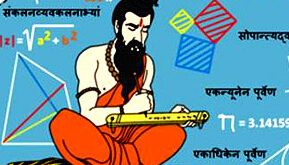 आमलकी एकादशी व्रत शुक्ल पक्ष की एकादशी को किया जाता है. इस व्रत में आंवले के वृक्ष की पूजा करने का विधि-विधान है. इस व्रत के विषय में कहा जाता है, कि यह एकादशी समस्त पापों का नाश करने वाली है.
आमलकी एकादशी व्रत शुक्ल पक्ष की एकादशी को किया जाता है. इस व्रत में आंवले के वृक्ष की पूजा करने का विधि-विधान है. इस व्रत के विषय में कहा जाता है, कि यह एकादशी समस्त पापों का नाश करने वाली है.
सौ गायों को दान में देने के उपरान्त जो फल प्राप्त होता है. वही फल आमलकी एकादशी का व्रत करने से प्राप्त होता है. इस व्रत में आंवले के पेड का पूजन किया जाता है. आंवले के वृ्क्ष के विषय में यह मत है, कि इसकी उत्पति भगवान श्री विष्णु के मुख से हुई है. एकादशी तिथि में विशेष रुप से श्री विष्णु जी की पूजा की जाती है. आंवले के पेड की उत्पति को लेकर एक कथा प्रचलित है.
समय – फाल्गुन शुक्ल पक्ष की एकादशी को आमलकी एकादशी के रूप में जाना जाता है। आमलकी एकादशी महाशिवरात्रि और होली के मध्य में आती है। अंग्रेजी कैलेण्डर के अनुसार वर्तमान में यह फरवरी या मार्च के महीने में आती है।
एकादशी के व्रत को समाप्त करने को पारण कहते हैं। एकादशी व्रत के अगले दिन सूर्योदय के बाद पारण किया जाता है। एकादशी व्रत का पारण द्वादशी तिथि समाप्त होने से पहले करना अति आवश्यक है। यदि द्वादशी तिथि सूर्योदय से पहले समाप्त हो गयी हो तो एकादशी व्रत का पारण सूर्योदय के बाद ही होता है। द्वादशी तिथि के भीतर पारण न करना पाप करने के समान होता है।
एकादशी व्रत का पारण हरि वासर के दौरान भी नहीं करना चाहिए। जो श्रद्धालु व्रत कर रहे हैं उन्हें व्रत तोड़ने से पहले हरि वासर समाप्त होने की प्रतिक्षा करनी चाहिए। हरि वासर द्वादशी तिथि की पहली एक चौथाई अवधि है। व्रत तोड़ने के लिए सबसे उपयुक्त समय प्रातःकाल होता है। व्रत करने वाले श्रद्धालुओं को मध्यान के दौरान व्रत तोड़ने से बचना चाहिए। कुछ कारणों की वजह से अगर कोई प्रातःकाल पारण करने में सक्षम नहीं है तो उसे मध्यान के बाद पारण करना चाहिए।
कभी कभी एकादशी व्रत लगातार दो दिनों के लिए हो जाता है। जब एकादशी व्रत दो दिन होता है तब स्मार्त-परिवारजनों को पहले दिन एकादशी व्रत करना चाहिए। दुसरे दिन वाली एकादशी को दूजी एकादशी कहते हैं। सन्यासियों, विधवाओं और मोक्ष प्राप्ति के इच्छुक श्रद्धालुओं को दूजी एकादशी के दिन व्रत करना चाहिए। जब-जब एकादशी व्रत दो दिन होता है तब-तब दूजी एकादशी और वैष्णव एकादशी एक ही दिन होती हैं।.
भगवान विष्णु का प्यार और स्नेह के इच्छुक परम भक्तों को दोनों दिन एकादशी व्रत करने की सलाह दी जाती है।
आमलकी एकादशी व्रत कथा
एक बार एक नगर था. इस नगर में सभी वर्गों के लोग मिलकर आनन्द पूर्वक रह्ते थें. लोगों का आपस में प्रेम होने के कारण धर्म और आस्था का निवास भी नगर में बना हुआ था. यह नगर चन्द्रवंशी नामक राजा के राज्य के अन्तर्गत आता था. उस राज्य में सभी सुखी थे, उस राज्य में विशेष रुप से श्री विष्णु जी की पूजा होती थी. और एकदशी व्रत करने की प्रथा उस नगर में प्राचीन समय से चली आ रही थी. राजा और प्रजा दोनों मिलकर एकादशी व्रत कुम्भ स्थापना करते थे. कुम्भ स्थापना के बाद धूप, दीप, नैवेद्य, पंचरत्न आदि से पूजा की जाती थी.
एक बार एकादशी व्रत करने के समय सभी जन मंदिर में जागरण कर रहे थे. रात्रि के समय एक शिकारी आया जो भूखा था, और वह लगभग सभी पापों का भागी था. मंदिर में अधिक लोग होने के कारण शिकारी को भोजन चुराने का अवसर न मिल सका और उस शिकारी को वह रात्रि जागरण करते हुए बितानी पडी. प्रात:काल होने पर सब जन अपने घर चले गए. और शिकारी भी अपने घर चला गया. कुछ समय बीतने के बाद शिकारी कि किसी कारणवश मृ्त्यु हो गई.
उस शिकारी ने अनजाने में ही सही क्योकि आमलकी एकादशी व्रत किया था, इस वजह से उसे पुन्य प्राप्त हुआ, और उसका जन्म एक राजा के यहां हुआ. वह बहुत वीर, धार्मिक, सत्यवादी और विष्णु भक्त था. दान कार्यो में उसकी रुचि थी. एक बार वह शिकार को गया और डाकूओं के चंगुल में फंस गया. डाकू उसे मारने के लिए शस्त्र का प्रहार करने लगे. राजा ने देखा की डाकूओं के प्रहार का उस पर कोई असर नहीं हो रहा है.
और कुछ ऎसा हुआ की डाकूओं के शस्त्र स्वंय डाकूओं पर ही वार करने लगे. उस समय एक शक्ति प्रकट हुई, और उस शक्ति ने सभी डाकूओं को मृ्त्यु लोक पहुंचा दिया. राजा ने पूछा की इस प्रकार मेरी रक्षा करने वाला कौन है.? इसके जवाब में भविष्यवाणी हुई की तेरी रक्षा श्री विष्णु जी कर रहे है. यह कृ्पा आपके आमलकी एकादशी व्रत करने के प्रभावस्वरुप हुई है. इस व्रत को करने से मोक्ष की प्राप्ति होती है.
आमलकी एकादशी महात्मय (Amalaki Ekadashi Mahatmya)
प्रकृति से मानव का सम्बन्ध आदि काल से है. मनुष्य सृष्टि के प्रारम्भ से ही प्रकृति की उपासना करता आ रहा है. वृक्ष में देवताओं का वास मानकर वृक्ष की उपासना भी की जाती रही है. पीपल और आंवले के वृक्ष को देवतुल्य मानकर उनकी आराधाना की जाती रही है, आमलकी एकादशी (Amalki Ekadasi) का व्रत इसी का प्रमाण है.
आमलकी यानी आंवले को शास्त्रों में उसी प्रकार श्रेष्ठ स्थान प्राप्त है जैसा नदियों में गंगा को प्राप्त है और देवों में भगवान विष्णु को. विष्णु जी ने जब सृष्टि की रचना के लिए ब्रह्मा को जन्म दिया उसी समय उन्होंने आंवले के वृक्ष को जन्म दिया. आंवले को भगवान विष्णु ने आदि वृक्ष के रूप में प्रतिष्ठित किया है. इसके हर अंग में ईश्वर का स्थान माना गया है. भगवान विष्णु ने कहा है जो प्राणी स्वर्ग और मोक्ष प्राप्ति की कामना रखते हैं उनके लिए फाल्गुन शुक्ल पक्ष में जो पुष्य नक्षत्र में एकादशी (Falgun Shukla Pusya Nakshatra Ekadashi) आती है उस एकादशी का व्रत अत्यंत श्रेष्ठ है. इस एकादशी को आमलकी एकादशी (Amlki Ekadasi) के नाम से जाना जाता है.
Amalaki Ekadasi
Time – Phalguna Shukla Paksha Ekadashi is known as Amalaki Ekadashi. Amalaki Ekadashi falls between Maha Shivaratri and Holi. Currently it is observed in month of Ferbruary or March in English calendar.
Parana means breaking the fast. Ekadashi Parana is done after sunrise on next day of Ekadashi fast. It is necessary to do Parana within Dwadashi Tithi unless Dwadashi is over before sunrise. Not doing Parana within Dwadashi is similar to an offence.
Parana should not be done during Hari Vasara. One should wait for Hari Vasara to get over before breaking the fast. Hari Vasara is first one fourth duration of Dwadashi Tithi. The most preferred time to break the fast is Pratahkal. One should avoid breaking the fast during Madhyana. If due to some reasons one is not able to break the fast during Pratahkal then one should do it after Madhyana.
At times Ekadashi fasting is suggested on two consecutive days. It is advised that Smartha with family should observe fasting on first day only. The alternate Ekadashi fasting, which is the second one, is suggested for Sanyasis, widows and for those who want Moksha. When alternate Ekadashi fasting is suggested for Smartha it coincides with Vaishnava Ekadashi fasting day.
Ekadashi fasting on both days is suggested for staunch devotees who seek for love and affection of Lord Vishnu.
Glories of Amalaki Ekadasi
King Mndhata once said to Vasishtha Muni, “O great sage, kindly be merciful to me and tell me of a holy fast that will benefit me eternally.”
Vasishtha Muni replied. “O king, kindly listen as I describe the best of all fast days, Amalaki Ekadasi.He who faithfully observes a fast on this Ekadasi obtains enormous wealth, gets free of the effects of all kinds of sins, and attains liberation. Fasting on this Ekadasi is more purifying than donating one thousand cows in charity to a pure brahmana. So please hear me attentively as I tell you the story of a hunter who, though daily engaged in killing innocent animals for his living, achieved liberation by observing a fast on Amalaki Ekadasi following the prescribed rules and regulations of worship.”
The Kingdom of Vaidisha
“There was once a kingdom named Vaidisha, where all the brahmanas, kshatriyas, vaishyas, and shudras were equally endowed with Vedic knowledge, great bodily strength, and fine intelligence. Oh lion among kings, the whole kingdom was full of Vedic sounds, not a single person was atheistic, and no one sinned. The ruler of this kingdom was King Pashabinduka, a member of the dynasty of Soma, the moon. He was also known as Chitraratha and was very religious and truthful. It is said that King Chitraratha had the strength of ten thousand elephants and that he was very wealthy and knew the six branches of Vedic wisdom perfectly.”
“During the reign of Maharaja Chitraratha, not a single person in his kingdom attempted to practice another’s dharma (duty); so perfectly engaged in their own dharmas were all the brahmanas, kshatriyas, vaisyas, and sudras. Neither miser nor pauper was to be seen throughout the land, never was there ever a drought or flood. Indeed, the kingdom was free of disease, and everyone enjoyed good health. The people rendered loving devotional service to the Supreme Personality of Godhead, Lord Vishnu, as did the king, who also rendered special service to Lord Shiva. Moreover, twice a month everyone fasted on Ekadasi. “In this way, O best of kings, the citizens of Vaidisha lived many long years in great happiness and prosperity. Giving up all varieties of materialistic religion, they completely dedicated themselves to the loving service of the Supreme Lord, Hari.”
Observing Amalaki Ekadasi
“Once, in the month of Phalguna (February – March), the holy fast of Amalakii Ekadasi arrived, conjoined with Dvadasi. King Chitraratha realised that this particular fast would bestow especially great benefit, and thus he and all the citizens of Vaidisha observed this sacred Ekadasi very strictly, carefully following all the rules and regulations.”
“After bathing in the river, the king and all his subjects went to the temple of Lord Vishnu, where an Amalaki tree grew. First the king and his leading sages offered the tree a pot filled with water, as well as a fine canopy, shoes, gold, diamonds, rubies, pearls, sapphires, and aromatic incense. Then they worshiped Lord Parashurama with these prayers: ‘Oh Lord Parashurama, Oh son of Renuka, Oh all-pleasing one, Oh liberator of the worlds, kindly come beneath this holy Amalaki tree and accept our humble obeisances.’ Then they prayed to the Amalaki tree: ‘Oh Amalaki, Oh offspring of Lord Brahma, you can destroy all kinds of sinful reactions. Please accept our respectful obeisances and these humble gifts. O Amalaki, you are actually the form of Brahman, and you were once worshiped by Lord Ramachandra Himself. Whoever circumambulates you is therefore immediately freed of all his sins.’
“After offering these excellent prayers, King Chitraratha and his subjects remained awake throughout the night, praying and worshiping according to the regulations governing a sacred Ekadasi fast. It was during this auspicious time of fasting and prayer that a very irreligious man approached the assembly, a man who maintained himself and his family by killing animals. Burdened with both fatigue and sin, the hunter saw the king and the citizens of Vaidisha observing Amalaki Ekadasi by performing an all-night vigil, fasting, and worshiping Lord Vishnu in the beautiful forest setting, which was brilliantly illuminated by many lamps. The hunter hid nearby, wondering what this extraordinary sight before him was.
The fortunate hunter
‘What is going on here?’ he thought. What he saw in that lovely forest beneath the holy Amalaki tree was the Deity of Lord Damodara being worshiped upon the Asana of a waterpot and he heard the devotees singing sacred songs describing Lord Krishna’s transcendental forms and pastimes. Despite himself, that staunchly irreligious killer of innocent birds and animals spent the entire night in great amazement as he watched the Ekadasi celebration and listened to the glorification of the Lord.”
“Soon after sunrise, the king and his royal retinue – including the court sages and all the citizens – completed their observance of Ekadasi and returned to the city of Vaidisha. The hunter returned to his hut and happily ate his meal. In due time the hunter died, but the merit he had gained by fasting on Amalaki Ekadasi and hearing the glorification of the Supreme Personality of Godhead, as well as by being forced to stay awake all night, made him eligible to be reborn as a great king endowed with may chariots, elephants, horses, and soldiers. His name was Vasuratha, the son of King Viduratha, and he ruled over the kingdom of Jayanti.
King Vasuratha
“King Vasuratha was strong and fearless, as effulgent as the Sun, and as handsome as the Moon. In strength he was like Sri Vishnu, and in forgiveness like the Earth itself. Very charitable and every truthful, King Vasuratha always rendered loving devotional service to the Supreme Lord, Sri Vishnu. He therefore became very well versed in Vedic knowledge. Always active in the affairs of state, he enjoyed taking excellent care of his subjects, as though they were his own children. He disliked pride in anyone and would smash it when he saw it. He performed many kinds of sacrifices, and he always made certain that the needy in his kingdom received enough charity.”
“One day, while hunting in the jungle, King Vasuratha strayed from the footpath and lost his way. Wandering for some time and eventually growing weary, he paused beneath a tree and, using his arms as a pillow, fell asleep. As he slept, some barbarian tribesmen came upon him and, remembering their long standing enmity toward the king, began discussing among themselves various ways to kill him. ‘It is because he killed our fathers, mothers, brothers-in-law, grandsons, nephews, and uncles that we are forced to aimlessly wander like so many madmen in the forest.’
The Great Rescue
So saying, they prepared to kill King Vasuratha with various weapons, including spears, swords, arrows, and mystic ropes. But none of these deadly weapons could even touch the sleeping king, and soon the uncivilised, dog-eating tribesmen grew frightened. Their fear sapped their strength, and before long they lost what little intelligence they had and became almost unconscious with bewilderment and weakness. Suddenly a beautiful woman appeared from the king’s body, startling the aborigines. Decorated with many ornaments, emitting a wonderful fragrance, wearing an excellent garland around her neck, her eyebrows drawn in a mood of fierce anger, and her fiery red eyes ablaze, she looked like death personified. With her blazing chakra discus she quickly killed all the tribal hunters, who had tried to slay the sleeping king.”
“Just then the king awoke, and seeing all the dead tribesmen lying around him, he was astonished. He wondered, ‘These are all great enemies of mine! Who has slain them so violently? Who is my great benefactor?’ At that very moment he heard a voice from the sky: ‘You asked that who helped you. Well, who is that person who alone can help anyone is distress? He is none other than Sri Keshava, the Supreme Personality of Godhead, He who saves all who take shelter of Him without any selfish motive.’
“Upon hearing these words, King Vasuratha became over-whelmed with love for the Personality of Godhead Sri Keshava (Krishna). He returned to his capital city and ruled there like a second lord Indra (king of the heavenly regions), without any obstacles at all.
Conclusion
“Therefore, Oh King Mandhata,” the venerable Vasishtha Muni concluded, “…anyone who observes this holy Amalaki Ekadasi will undoubtedly attain the supreme abode of Lord Vishnu, so great is the religious merit earned from the observance of this most sacred fast day.”
 पौराणिक कथाओं, प्रेरक क्षण, मंदिरों, धर्मों, फिल्मों, हस्तियों के बारे में दिलचस्प जानकारी, हजारों गाने, भजन, आरती के बोल हैं Your wish may come true today…
पौराणिक कथाओं, प्रेरक क्षण, मंदिरों, धर्मों, फिल्मों, हस्तियों के बारे में दिलचस्प जानकारी, हजारों गाने, भजन, आरती के बोल हैं Your wish may come true today…



